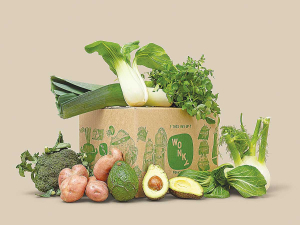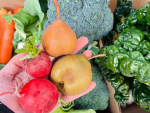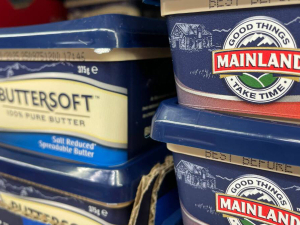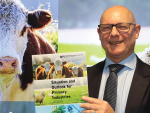Could blemish-free fruit and vegetables be a thing of the past?
According to the latest United Fresh Mid-Year Trend Report, consumers are now embracing imperfections in their fresh produce as a way of reducing food waste.
While Woolworth’s The Odd Bunch brand has proved popular, the rise in ‘ugly’ fruit has led Kiwis to look to home subscription services like Wonky Box and Misfit Garden.
Wonky Box cofounder, Angus Simms says demand for a product like his has been “quite good”.
“Consumers in our economy at the moment are driven by value over a lot of other things,” he told Hort News. “I think Wonky Box fits into that convenience space because of the home delivery aspect but we also, because we’ve got a value-added product, one that is affordable, we’re seeing that the demand is still there for it.”
Wonky Box, which launched its fruit-only box earlier this year, was co-founded by Simms and his partner Katie Jackson in response to the significant amount of food waste experienced by growers as a result of supermarkets’ cosmetic standards.
The couple had been working around New Zealand amid the Covid-19 pandemic, travelling the country in a campervan and working seasonal fruit picking jobs in the South Island.
“It was a real interesting time that summer because there was a lot of bad weather. The summer of 2021 had storms and all sorts of issues, floodings and things like that happen, which were so unusual for that time of year but what had happened was it had thrown off a lot of the crops that the growers were making or the orchards were producing to the point where they were having to throw away or leave a load in the paddocks or in the orchards that weren’t able to be sold to export markets or supermarkets,” Simms says.
He says he and Jackson were “in the thick of it”, witnessing what growers and orchardists were going through.
“Most of the time, if not nearly all the time, a lot of these reasons for reject were quite hard to comprehend almost, also coinciding with the fact that produce was quite expensive if you were to go and buy it from your local retailer,” he says. “We figured there might be a solution.”
The business works on a grower-led model, meaning the control is in the growers’ hands.
“So, whatever is available from one week to the next, whatever’s in abundance or surplus or is there sitting on farm that they might struggle to move into retailers or overseas, we’ll piece together a box based on what’s available and, as a result, we pass any savings… onto our customers,” Simms says.
It’s a model another imperfect fruit company, Misfit Garden, also follows.
Jennifer Long, the company’s co-founder says Misfit Garden was an idea that came out of the first lockdown.
“We [Long and cofounder Sofia Dekovic] were reading news articles about growers who had baby veg that were too large because all the restaurants were shut… and so, we got in touch with one of the growers and he was like ‘Oh my God, I’ve got all these massive golden beetroot that I don’t have a market for’ and so we took some down to the local market and started selling them with a trestle table and it just sort of grew from there,” Long told Hort News.
“So, it was a small idea that grew,” she says.
Long says their grower-led model – as opposed to a consumer demand-driven model - helps to reduce food waste.
“We communicate with growers and we basically ask them what they want to harvest… we basically chat to them and say ‘hey, what have you got in the paddocks that maybe you need to pick in the next week or so?’.”
“We plan the box around them,” she says.
However, she says there’s a significant aspect to reducing food waste that is about educating consumers.
“Because we’re so used to buying perfect things at the supermarket and if you’ve not been exposed to growing things yourself, you don’t understand that not everything goes perfectly,” Long says.
“If you want to reduce food waste, you’ve got to eat the bent parsnip and the carrot with two legs,” she adds.
Long describes the growers Misfit Garden works with as their “backbone”.
“The whole point of what we’re doing is to support them… it’s the whole reason that we’re doing what we’re doing,” she concludes.


















